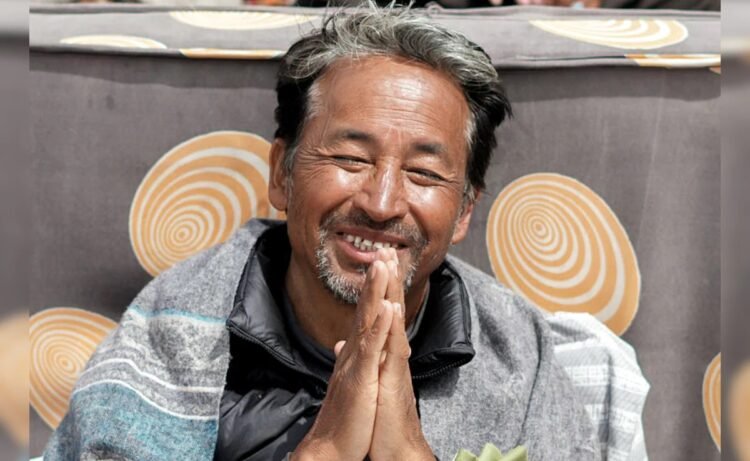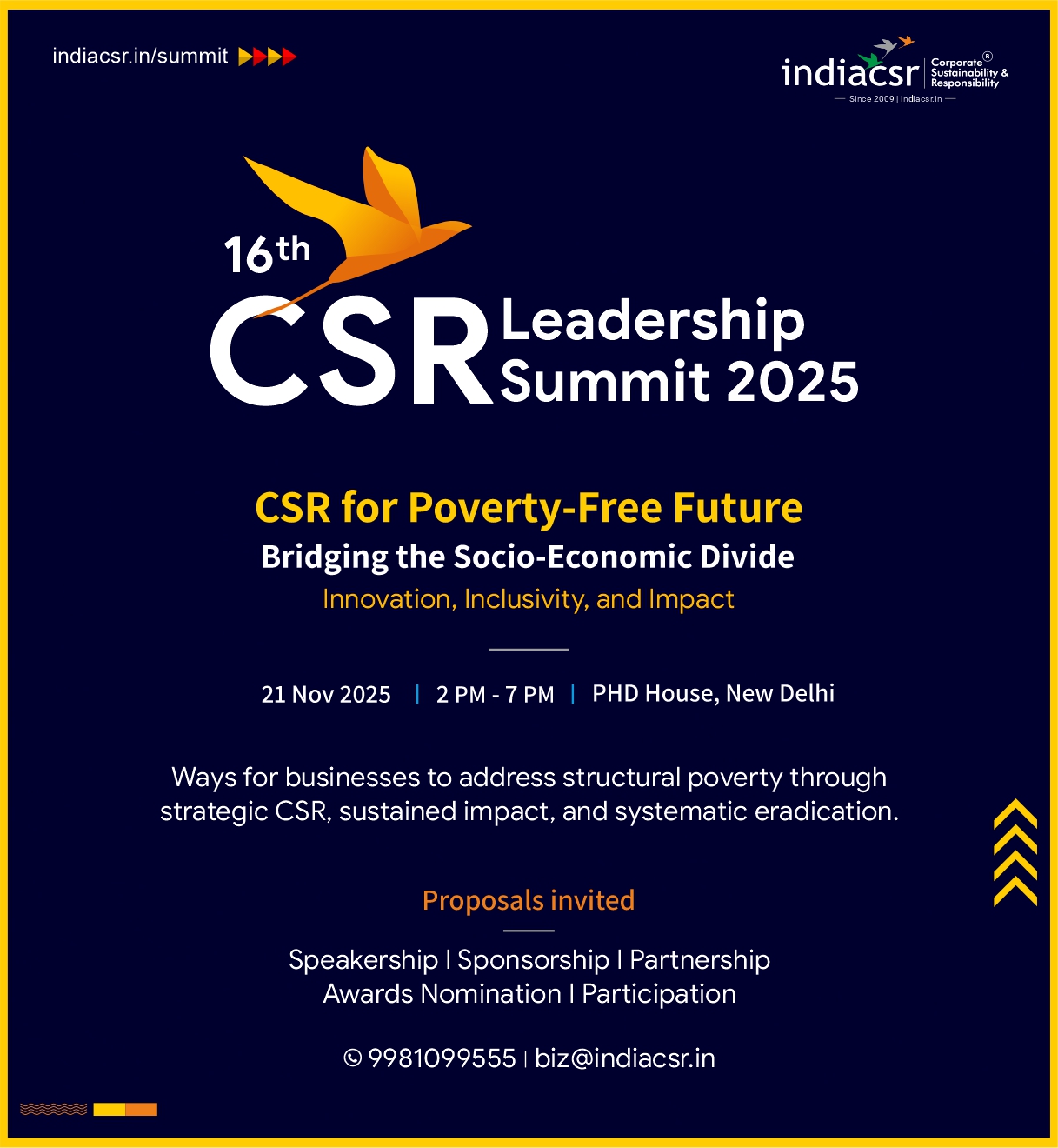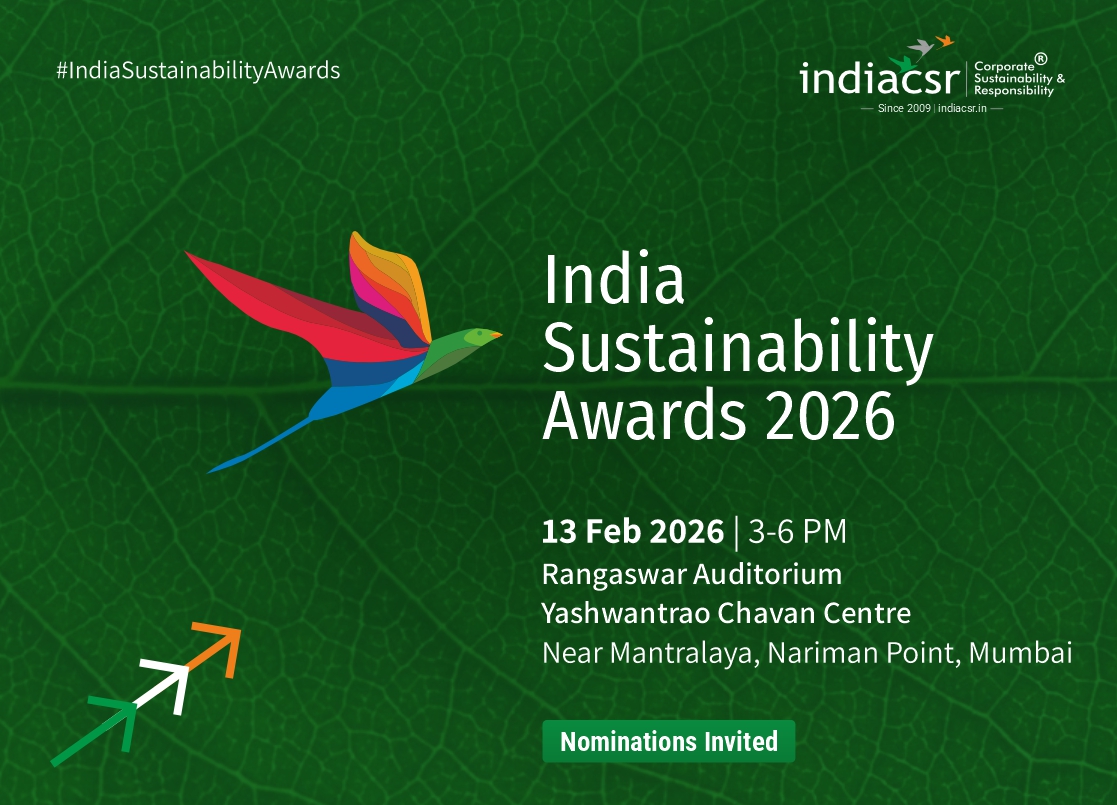He condemned the violence, appealed for peace, and attributed the unrest to pent-up frustrations among the youth, while denying any orchestration.
NEW DELHI (India CSR): Sonam Wangchuk, a renowned Indian engineer, innovator, and climate activist from Ladakh, has long been recognized for his work in education reform and sustainable development, including the Ice Stupa project for water conservation. However, in recent years, his activism has shifted toward political demands for Ladakh’s autonomy.
The Hunger Strike and Demands
On September 10, 2025, Wangchuk initiated a hunger strike in Leh, demanding the inclusion of Ladakh under the Sixth Schedule of the Indian Constitution, which provides safeguards for tribal areas, and full statehood for the region. These demands stem from ongoing concerns over land rights, environmental protection, and cultural preservation following Ladakh‘s separation from Jammu and Kashmir as a Union Territory in 2019.
***
Escalation to Violence
The protest escalated on September 24, 2025, when clashes erupted in Leh between demonstrators and security forces, resulting in at least four deaths and over 80 injuries. Protesters reportedly set vehicles on fire and engaged in stone-pelting, leading to the imposition of curfew in the area. Wangchuk ended his hunger strike amid the chaos but vowed to continue the agitation through other means.
***
Government Response and Accusations
The Ministry of Home Affairs (MHA) has attributed the violence to provocative statements made by Wangchuk during his strike, including references to “Arab Spring-style” movements and Gen Z protests in Nepal, which allegedly incited the mob. Government sources described the unrest as “engineered deliberately,” claiming Wangchuk misled youth and exploited emotions. The Bharatiya Janata Party (BJP) has accused opposition parties like Congress of fueling the protests.
***
Allegations of External Influences
Social media discussions and opinion pieces have raised questions about Wangchuk’s motives, with some labeling him a “foreign-backed agitator” aiming to disrupt development in the strategically important border region. Critics point to his family’s political ties to Congress and unpaid dues related to land allotments for his Himalayan Institute of Alternative Learning (HIAL), which was canceled due to violations. Wangchuk has also faced scrutiny for attending international conferences, such as one in Pakistan earlier in 2025.
***
Broader Implications
The events highlight tensions in Ladakh over infrastructure projects, which some view as essential for national security but others see as threats to the fragile ecosystem. Supporters argue Wangchuk’s fight is for genuine rights, while detractors claim it’s politically motivated. As of September 25, 2025, investigations continue, with calls for dialogue between stakeholders.
Sonam Wangchuk’s Statements Following the Leh Unrest
After the violent clashes in Leh, Ladakh, on September 24, 2025, which resulted in at least four deaths and numerous injuries during protests for statehood and Sixth Schedule inclusion, climate activist and engineer Sonam Wangchuk ended his hunger strike and issued several statements. He condemned the violence, appealed for peace, and attributed the unrest to pent-up frustrations among the youth, while denying any orchestration. Below is a compilation of his key remarks, drawn from his social media post and interviews.
Appeal for Peace and Condemnation of Violence
In a video posted on X (formerly Twitter) shortly after the unrest, Wangchuk expressed regret over the failure of his non-violent approach and urged protesters to cease actions that could harm their cause.
- “Very sad events in Leh today. My message of a peaceful path failed. I appeal to the youth—please stop this nonsense. This only weakens and damages our cause.”
He reiterated his opposition to violence in a social media post, describing the unrest as a setback to Ladakh’s statehood movement.
- “I do not support violence.”
Wangchuk also affirmed his lifelong commitment to non-violence, even as he acknowledged growing impatience among younger protesters with Gandhian methods like fasting (anshan).
- “They would accuse me for keeping to the peaceful path of anshan. So this was already building up.”
- “Maybe the government takes it more seriously and we don’t have to do anshan again. But yes, I will only and always take the peaceful path… not only until this is solved, but until my death.”
He ended his hunger strike on September 24 “in the interest of peace,” following the hospitalization of two fellow strikers, which he said triggered the youth’s anger.
Explanation of the Unrest as Youth Frustration
Wangchuk described the violence as an “organic outburst” stemming from years of unmet demands, including joblessness, curtailed democracy, and the government’s delay in talks (scheduled for October 6).
- “For the last five years, we have maintained utmost peace and always peaceful approaches following Mahatma Gandhi’s path… But today was something totally unexpected, out of the blue, very organic, when youth came out and went on a rampage.”
- “That boiled their (young people’s) blood.”
- “Together with the fact that the government had given a date for talks which was unnecessarily 16 days away, people were very upset. So this frustration was pent-up inside.”
- “On one hand they have been jobless for the last five years, there have been almost no jobs particularly at the higher levels, and democracy has been curtailed. Their demands have been unmet.”
He linked the targeting of BJP offices and police vehicles to perceived betrayals by the ruling party, including a “U-turn” on promises for Sixth Schedule protections in their 2020 manifesto.
- “In 2020 they had in their manifesto as point number one that Ladakh will be taken under Sixth Schedule. They completely took a U-turn.”
- “So there has been a pent-up frustration against them.”
Denial of Political Orchestration and External Funding
Responding to government accusations that he incited the mob with references to Arab Spring-style protests and Gen Z movements in Nepal, Wangchuk dismissed claims of political involvement, emphasizing the apolitical nature of the agitation.
- “Totally, totally apolitical.”
- “I know Congress, they’re not so competent that one leader of theirs can call 5,000 people. That would be too much credit of their influence.”
He also rejected allegations of external funding or harassment, pointing instead to corruption within the Union Territory administration.
- “There are so many cases openly of corruption in the UT, but the investigation is happening on us.”
Wangchuk’s statements highlight his continued advocacy for Ladakh’s demands through peaceful means, despite the setback from the violence. As of September 25, 2025, a curfew remains in place in Leh, with ongoing investigations into the clashes.
(India CSR)








